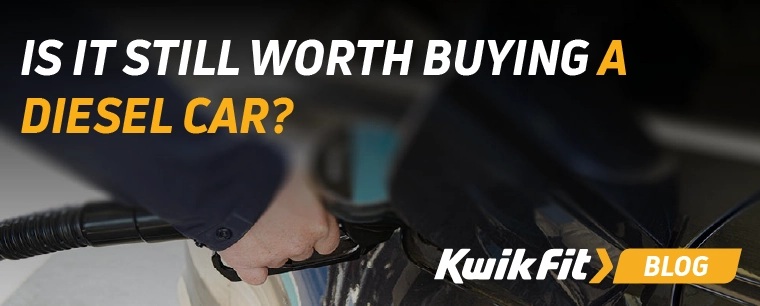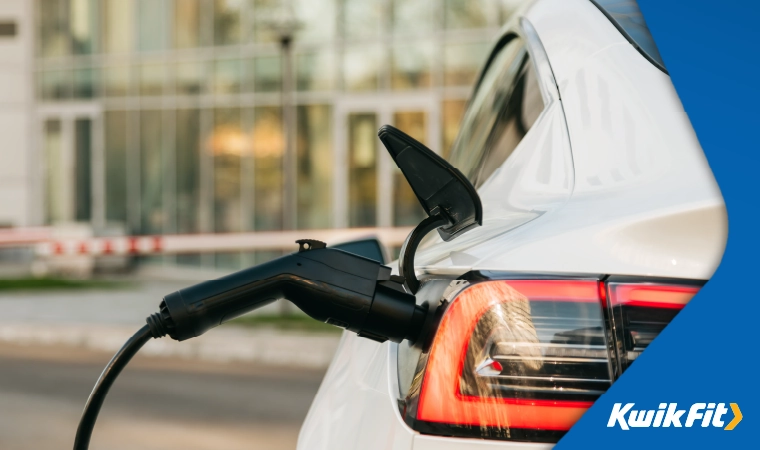Is it Still Worth Buying a Diesel Car?
Jessica Bird | Sunday 31st August 2025 9:43am

If you look at Britainís roads, many people are still driving diesel cars, despite the rising popularity of Ďgreenerí vehicles such as hybrids and electrics. However, as for buying diesel cars, thatís a different story.
As electric vehicles and hybrids become more popular and affordable, and laws change, are diesel cars becoming a thing of the past? If youíre thinking about buying a diesel car this year, there are a few factors you might want to consider.
Read on for more.
Why buy a diesel car?
Diesel cars are great performers, and are known for their fuel efficiency. So, if endurance and miles to the gallon matter most to you, a diesel car might be your best bet.
Endurance
Itís a well-known fact that diesel cars are amongst the most hard-wearing on the market. To put it simply: diesel cars are built to last. This is largely due to the overall design of diesel engines, most notably the fact they are gear-driven, have better lubrication, and encounter less wear.
However, the compression ignition method of power also makes diesel engines more durable, as do the stronger components inside those engines.
- On average, a regular petrol engine can typically operate for about 200,000 miles before any serious maintenance or repairs are needed.
- A diesel engine, though, can run for up to 1,000,000 to 1,500,000 miles without the need for significant maintenance.
- If kept in good working condition, a diesel engine could well last you 30 years. Whether the car around the engine will need serious maintenance before the million miles mark, however, is another question.
Fuel efficiency
Diesel cars are historically more fuel efficient too, making them cheaper to run. At a time when the price of fuel seems to be soaring ever higher, it makes sense to many drivers to purchase a vehicle that is economical.
Compared with regular petrol, diesel fuel contains approximately 10 - 15% more energy. Whatís more, diesel vehicles can usually run about 20 - 35% further on a gallon of fuel than petrol ones.
Why consider alternatives to diesel cars?
On the other hand, there are plenty of valid reasons why diesel cars arenít always peopleís first choice anymore, most notably due to their environmental impact, emissions, and the increasing affordability of EVs.
Even if you donít plan on making the full switch to EVs, petrol cars are generally far less polluting than diesel engines, producing lower levels of nitrogen oxides and particulate matter, not to mention their quieter operation and potentially lower insurance premiums.
Environmental impact
Itís common knowledge that diesel cars are fairly unforgiving when it comes to the environment, especially in comparison to their electric counterparts. Emissions from diesel contain harmful pollutants that can have both adverse health and environmental effects. These originate from the combustion process and usually include:
- Unburned hydrocarbons (HC)
- Nitrogen Oxides (NOx)
- Particulate Matter (PM)
- Carbon monoxide (CO)
It is a combination of these pollutants ó alongside the release of CO2 ó that contribute to the greenhouse gases in the atmosphere, which, in turn, has a knock-on effect on global warming. So, if you care about the planet a lot, a diesel car probably isnít your best bet. Also, emissions are now a part of the MOT which is definitely something to think about.
If you do drive a diesel, here are some tips for reducing your carís carbon footprint.
Are diesel cars "bad"?
Diesel cars have long been loved by motorists for their fuel efficiency, longevity, and impressive torque. However, itís now known that these vehicles produce the majority of nitrogen oxide (NOx) gases and particulate matter that come from roadside sources, and this is causing major problems when it comes to air quality.
Fuel efficient, but poor on emissions
In many UK cities, nitrogen oxides now regularly breach safe levels, and poor air quality is now linked to 1 in every 19 deaths in the country.
Recent studies have linked air pollution to health issues such as lung problems and heart disease, and researchers have even identified a potential link between this type of pollution and dementia. On top of this, Nitrogen Oxideís contribution to the Greenhouse effect is a growing problem in light of climate change.
Given all of this, itís not hard to see why many governments and drivers around the world are starting to rethink their attitude towards diesel vehicles Ė and due to a recent legal ruling by the European Court of Justice (ECJ), more motorists may start to ditch diesel in favour of cars powered by alternative fuels.
So, while diesel cars arenít ďbadĒ, they certainly donít help the problem of emissions and air quality.

Legislative changes
In light of the environmental concerns associated with diesel and petrol cars, the UK government is taking steps to reduce the number of these vehicles on the roads.
The UK's 'Road to Zero' plan
- In the UK, for example, both new diesel and petrol cars are being banned from sale by 2030.
- Whatís more, beyond 2035, the only new cars that will be sold will be 100% electric (or, depending on their development, hydrogen-powered cars).
- By this date, at least 50% of new cars and 40% of new vans sold must be ultra-low emission.
Wider law changes
- More widely, the EU has also announced its plan to ban petrol and diesel cars from being manufactured from 2035 completely.
- This goes hand in hand with the UKís recent investment into the electric vehicle industry, including £1.3 billion back in 2020 for the construction of EV charging points and pledging 100,000 more EV chargepoints in June 2025 (as funded by the £381 million Local Electric Vehicle Infrastructure Fund, AKA ĎLEVIí).
EVs are becoming more affordable
While it is still undoubtedly cheaper to buy a second-hand diesel vehicle than a brand-new electric car, EVs are gradually becoming more affordable for regular motorists. So, if you're looking to move away from diesel and into greener driving, things are looking more and more feasible.
Charges
If planning on buying a diesel car, you should take into account some of the associated costs of owning one. For example, typically city-dwellers opt for more environmentally friendly cars due to taxes such as the LEZ and ULEZ.
If you want to drive your diesel car through central London, you should expect to pay £12.50 for the day or face a £160 fine (reduce to £80 if paid within 14 days)
Itís clear then, that the powers that be arenít making it easy to own a diesel car should you want one or not.
Are people already abandoning diesel cars?
Diesel car owners are already making the switch to petrol, hybrid, or electric vehicles, and have been for some time!
- Back in 2019, a study released by Kwik Fit revealed that half of diesel car owners intend to switch vehicles in the next two years.
- Of these people, only one in six (16%) were planning to purchase a diesel in comparison to 42% who intended to buy petrol, and 19% who wanted to opt for a hybrid.
- We also discovered that those who were considering diesel would want a significant discount on the price. Drivers revealed they would expect an average discount of over 18% in order to consider purchasing a diesel car.
In 2025, weíve seen considerable reductions in the number of drivers purchasing diesel cars, with diesels making up just 5.8% of the UKís new car market (compared to 50% ten years ago).

Is it still worth buying a diesel car?
When assessing the pros and cons of purchasing a diesel car today, itís pretty clear that these vehicles fall behind when it comes to emissions and environmental impact. Compared to petrol, hybrids, and EVs, diesel models simply canít keep up with the demands put on modern vehicles by new emissions-related legislation, no matter how economical they may be to run.
Sure, if you want a reliable, durable car that is cheap to run, you might consider opting for a diesel. However, given the ban on the sale of new diesels by 2030 and their decreasing popularity, you can expect to spend more on sourcing replacement parts and repairs, not to mention emissions-related tariffs.
If youíre not onboard with all things EV yet, an efficient petrol car may be your best bet, meeting sustainability and fuel economy halfway.
Future-proof your wheels with Kwik Fit
Whichever vehicle you have, it is important to get it serviced regularly to ensure it stays roadworthy for as long as possible. Book in for regular services at your local Kwik Fit, and make the most of our free vehicle safety checks too.
If you have any further questions, be sure to check in with the technicians at your local Kwik Fit. And, as always, for more helpful motoring advice, keep up with our blog.
Any facts, figures and prices shown in our blog articles are correct at time of publication.
Featured Articles
Is it Illegal to Drive With One Headlight?
Saturday 19th July 2025
Wondering if itís illegal to drive with one headlight? Learn about the safety risks and penalties of illegal blown bulbs and why you should fix them promptly.
Air Con in EVs & Hybrids: Experts Answer Your Questions
Monday 30th June 2025
Does air con drain EV batteries? Can you use the air con while charging an electric car? Find out the answers to these questions & more from Kwik Fitís experts.
Why Is Your Car Making a Noise? Fixes & Tips
Friday 13th June 2025
When your car starts making unexpected noises, it can certainly be quite disconcerting; it may be nothing to worry about, but hereís what you need to know.









